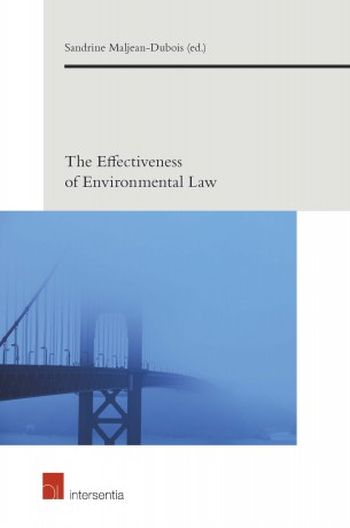
This book is the third volume in the European Environmental Law Forum (EELF) book series. The EELF is a non-profit initiative of environmental law scholars and practitioners from across Europe aiming to support intellectual exchange on the development and implementation of international, European and national environmental law in Europe. One of the activities of the EELF is an annual conference. This book is comprised of fifteen contributions presented at the Third EELF Conference in Aix-en-Provence, hosted by the Central European Research Infrastructure Consortium, at Aix-Marseille University, from 2 to 4 September 2015.
The central topic of the book is the effectiveness of environmental law. The impressive development in environmental law has not always been matched by corresponding improvements in environmental quality. The threats to our environment and, by extension, to our health have never been so numerous or serious. But paradoxically, the effectiveness of environmental law has been a long-neglected issue. This book offers a fruitful and stimulating dialogue between practitioners and academics, from varied countries and varied fields, combining empirical and theoretical approaches.
The contributions go from classical -but still necessary- tools (control, criminal, administrative, civil sanctions, liability rules, strengthening of the regulatory structure and the role of judges...), to more innovative ones (public participation, effectiveness of instrument mixes, collaborative governance, hybrid governance and private environmental enforcement...).